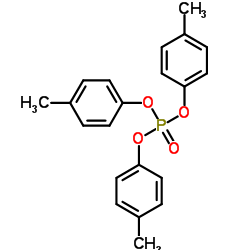| Structure | Name/CAS No. | Articles |
|---|---|---|
 |
Tris(4-methylphenyl) phosphate
CAS:1330-78-5 |
| Structure | Name/CAS No. | Articles |
|---|---|---|
 |
Tris(4-methylphenyl) phosphate
CAS:1330-78-5 |